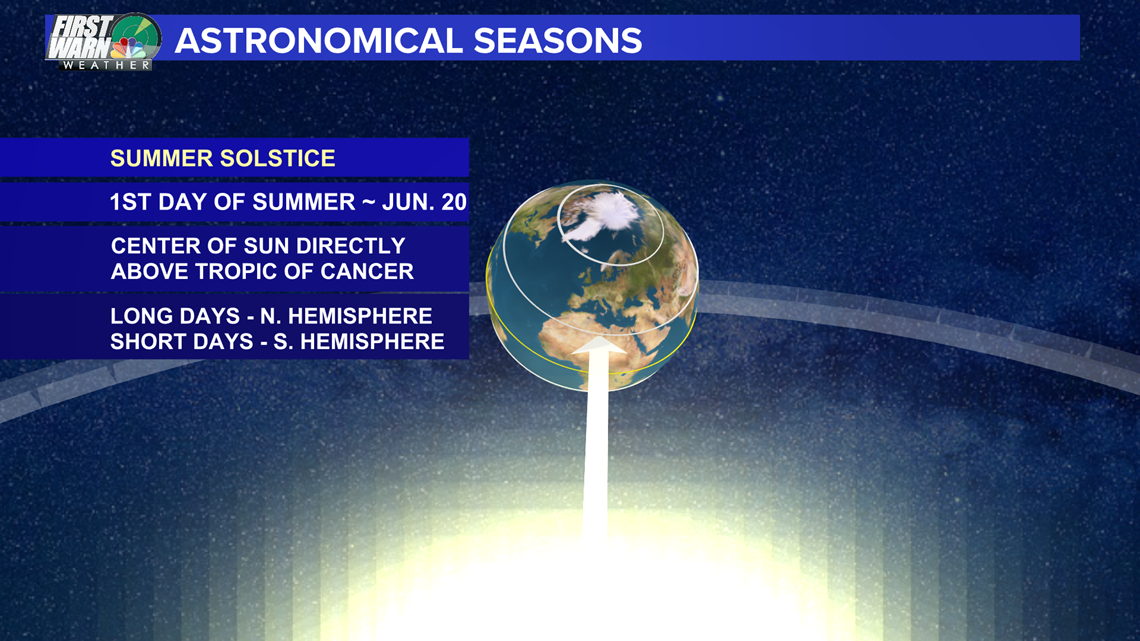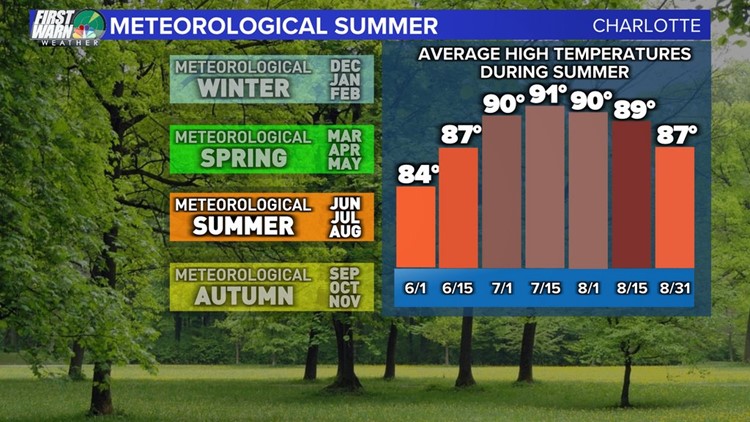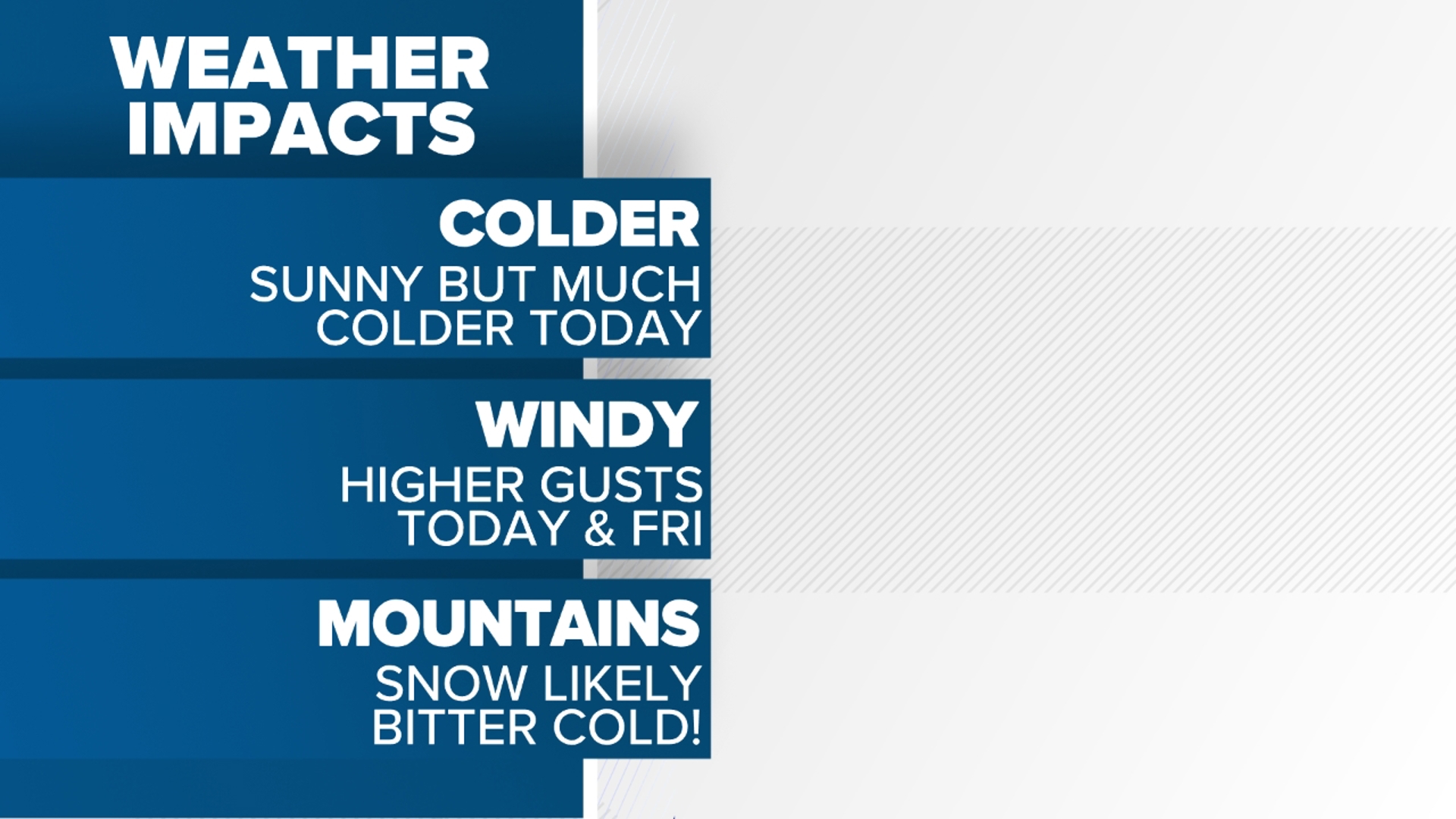CHARLOTTE, N.C. — It's June 1, so we're turning the page and welcoming a new season, summer. But you may have heard something different in school or based on your calendar.
Meteorological seasons are based on the annual temperature cycle, whereas astronomical seasons are based on the rotation of the Earth around the sun, which gives us two solstices and two equinoxes.
The summer solstice falls on or around June 21 (June 20 this year) and the winter solstice falls on or around Dec. 22. The vernal equinox lands on or around March 21 and the autumnal equinox falls on or around Sept. 22. Due to leap years and the elliptical shape of the earth's orbit around the sun, the length of the seasons and their start dates will vary between 89 and 93 days, according to NOAA, which can lead to inconsistent climate data over time.


Therefore, we have meteorological seasons. June, July, and August is the hottest time of the year. On the other hand, December, January, and February is the coldest time of year. This is the idea of meteorological seasons. It's consistent and grouped into three months.
Here are the average highs in Charlotte. The average high today is 84°. By July, the average high jumps to 91° before falling into the middle 80s by August.
Welcome to summer!
Contact Iisha Scott at iscott@wcnc.com and follow her on Facebook, Twitter and Instagram.



